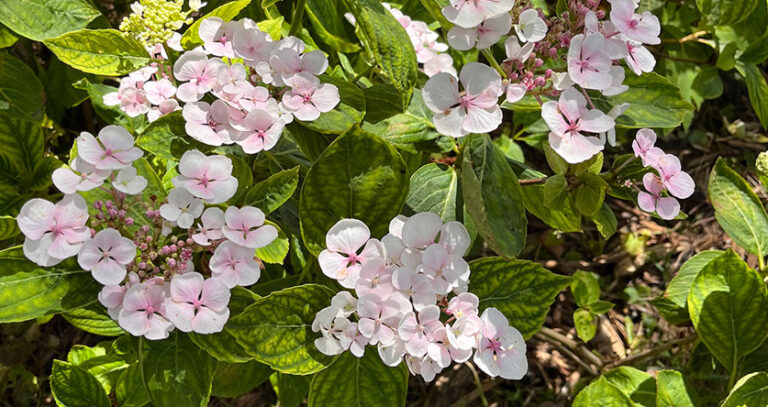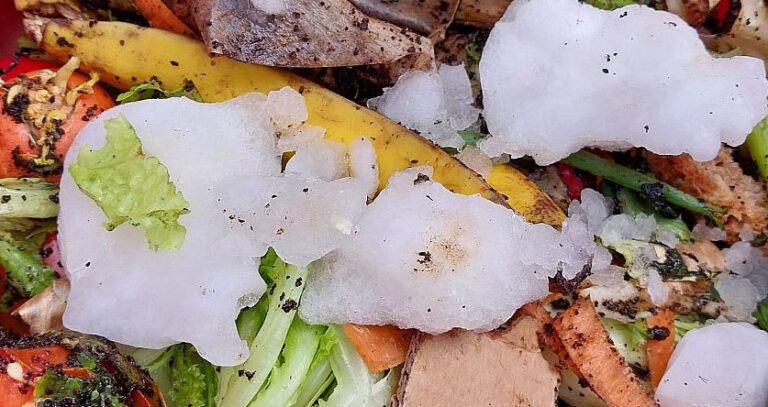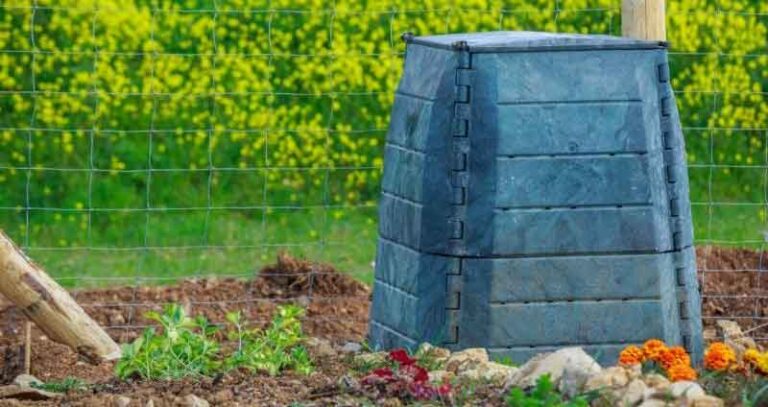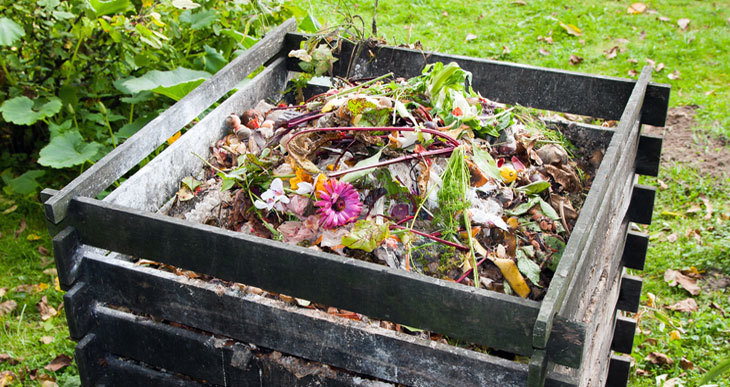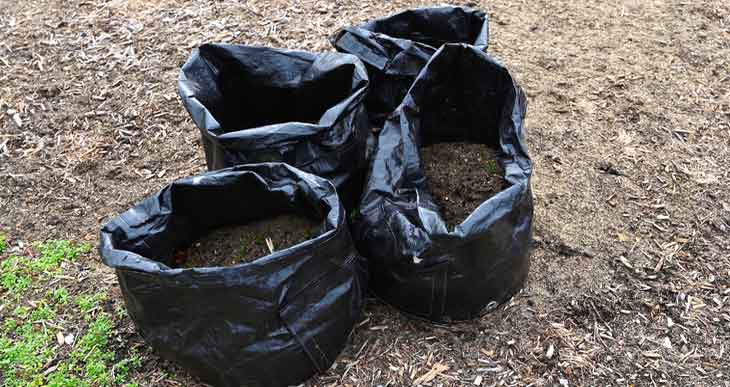How Long Does It REALLY Take To Make Compost?

It’s the question on everyone’s mind as they start composting: when will I get to use my compost?
Frustratingly, there isn’t a simple answer. You could be lucky enough to have finished compost in less than a month, or you might need to wait a whole year or longer.
Some factors influencing how long it takes for organic wastes to become black gold are out of your control (like the weather). However, there are lots you can do to speed up composting results. For example, why wait 12 months or more for your compost when you could have it in half that time or quicker?
I’ve been experimenting with different composting techniques for years. I am about to share the must-know tips and tricks I’ve discovered.
How Long Does Compost Take To Make
Making compost can take as short as a few weeks or as long as a year or two. Different composting methods, types of organic waste, and weather conditions either speed up or slow down results. Carefully built and maintained hot compost systems give the quickest results.
Phases Of Composting
Suppose the conditions are just right for aerobic (with oxygen) composting. In this case, organic wastes will go through three phases as they decompose:
- the mesophilic phase,
- thermophilic phase,
- and maturation phase.
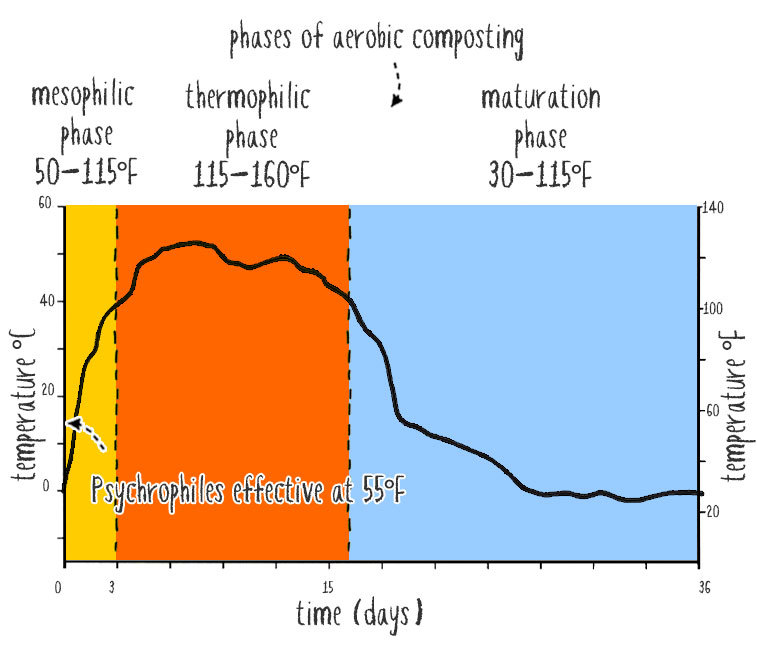
The Mesophilic Phase
You’ve just built a compost heap that offers composting creatures (bacteria, fungi, and creepy crawlies) everything they’ll need to perform at their peak. Your compost is about to enter the mesophilic phase. The mesophilic composting team tackles the task of decomposing your organic wastes.
At the start of the process, the compost’s temperature is about 50°F. Then, as the mesophilic composting team breaks down the organic wastes, they produce heat, raising the temperature.
Within a few days, the heap warms up to about 115°F, and the compost moves into the thermophilic phase.
The Thermophilic Phase
During this phase, the heat-loving thermophilic composting team goes all out to break down the organic wastes. The team decomposes wastes at quite a rate, letting off great heat as they work. As a result, the temperature in the heap soars to about 140°F.
After two weeks or so of fast, fiery work, the team runs out of things to decompose, and their work intensity eases. The temperature in the compost then drops to what it was in the mesophilic phase. Finally, the thermophilic team hand over to the mesophilic squad to finish the composting.
The Maturation Phase
With temperatures in a pile back in the range of 50 to 115°F, the mesophilic composting team continues breaking down what’s left of the organic wastes.
The team works slowly and steadily to get the compost plant-friendly. The maturation phase is the longest, lasting several months.
How Long Does It Take To Make Compost In A Pile
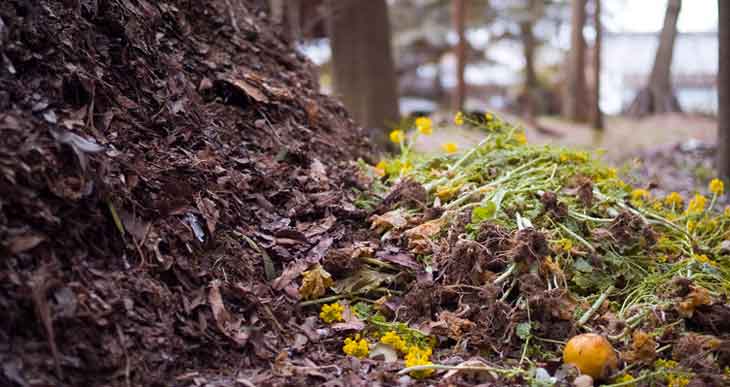
It can take anything from three months to a year or two to make compost in a pile.
The one- to two-year time frame is for organic wastes you dump and leave to break down without your help.
You can cut the composting time to a few months by getting involved (I’ll give you pointers later in this article).
How Much Time To Make Compost In A Compost Bin
Making compost in a bin is quicker than making it in an open pile because the bin holds heat for faster results.
Making compost in a bin can take two months (with your dedicated help) to about a year (if left to nature).
How Long Does To Make Compost In A Tumbler
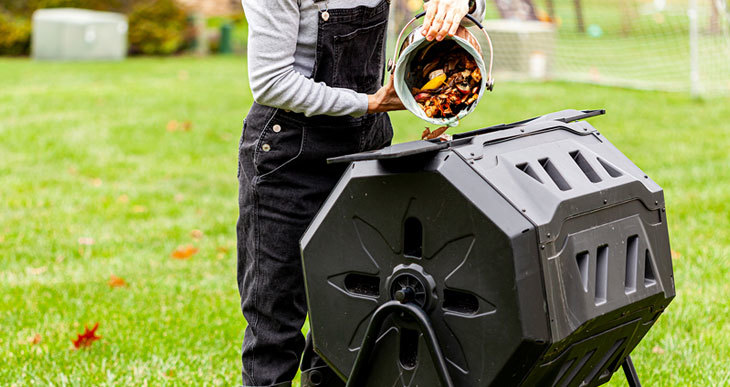
You should get quicker results making compost in a tumbler than in a bin or open pile. If you take your compost tumbling seriously, you can have finished compost in under a month.
Tumblers speed up the composting process in two ways: making it easier for you to turn the compost and retaining heat and moisture inside the container.
You’ll find aerated compost tumblers like this one that will make the process more efficient. (Amazon)
Signs That Your Compost Is Ready:
You can tell your compost is ready by its look, smell, and texture.
Finished compost looks like dark-brown, rich soil with few pieces of organic matter you can recognize. It feels fine and crumbly. And it smells like fresh earth after a thunderstorm.
Want another way to tell whether your compost is ready? Try this test: seal a handful of compost into a resealable plastic bag and put it aside. Three days later, open the bag and smell inside. A sour smell shows that the compost needs more time to mature before adding it to your garden.
Smells earthy and sweet? It’s ready!
What Will Make Compost Break Down Faster
Now for everyone who’s waaay too impatient to wait a year (or even two!) for their compost, here are some guidelines for faster results.
How to Hurry Composting Along:
The secret to fast composting? Heat. Remember that ideal 140°F temperature during the thermophilic composting phase, where heat-loving composting creatures are revved up and working like crazy to decompose organic wastes? That’s the temperature you want for your compost till the bulk of organic wastes has broken down.
There are 3 basics to boosting composting results:
- Balance your nitrogen-rich greens and carbon-dense browns. Many composting experts recommend using three-part browns to one-part greens. However, getting this ratio right might be tricky, so just make sure you have at least an even mix of browns and greens in your compost.
- Get your compost’s moisture level feeling similar to a wrung-out sponge. Aim for 40 to 60% water (you can check moisture levels with a compost moisture meter – Amazon).
- Turn your compost regularly to give the composting creatures the air they’ll need to flourish. (If you’re using a tumbler, spin it about three times a week. Composting in a bin or pile? Use a fork or spade to turn your compost once a week. However, if it becomes soggy, add straw or shredded newspaper and turn it more frequently.)
More steps to supercharge your composting:
- Start your compost bin or pile with a layer of bulky browns like sticks, cobs, and husks. A base like this will improve airflow and drainage.
- Position compost piles or bins in sunny spots if you have a cooler climate. Cover your compost with a protective tarp if you live in a rainy area.
- Build a compost pile at least 3x3x3 feet in size (or bigger if you think you can manage it).
- Shred or grind most of your organic wastes before adding them to your compost. Keep some larger pieces, like bits of egg boxes and cobs, to encourage airflow through the compost.
Note: compost shredders are probably the most satisfying gardening equipment you’ll ever own! I recommend something like this powerful electric shredder. (Amazon)
Bonus Composting Hacks To Try
So, you’ve balanced your greens and browns, you’re keeping your eye on your compost’s moisture level, and you’re turning it when it needs a good airing. But is there more you can do to get those composting creatures fired up?
Yes, you could give compost activators a go!
Compost activators are supplements you add to your compost for faster results. You’ll find all sorts of activators, from synthetic and natural ones at the store to ones right there in your backyard.
These are my top picks:
- Finished compost or topsoil. Fully matured compost is the perfect activator for a new batch! Every time you add a new layer (about a foot high) of organic wastes sprinkle a thin layer of compost on top. Can’t get your hands on finished compost? Use topsoil instead.
- Manure. Or you could go for stink-free manure pellets (which you can buy at the shops).
- Powdered meals. These can be animal-based (bone and blood meals) or plant-based (alfalfa and soybean meals).
Something else that might give you better composting results is a gadget called a compost aerator. This nifty compost tool takes some effort out of turning your pile, upping the chance you’ll do it regularly!
Compost aerators come in two designs: a corkscrew style (best for light compost) and a plunger style (for heavier loads).



